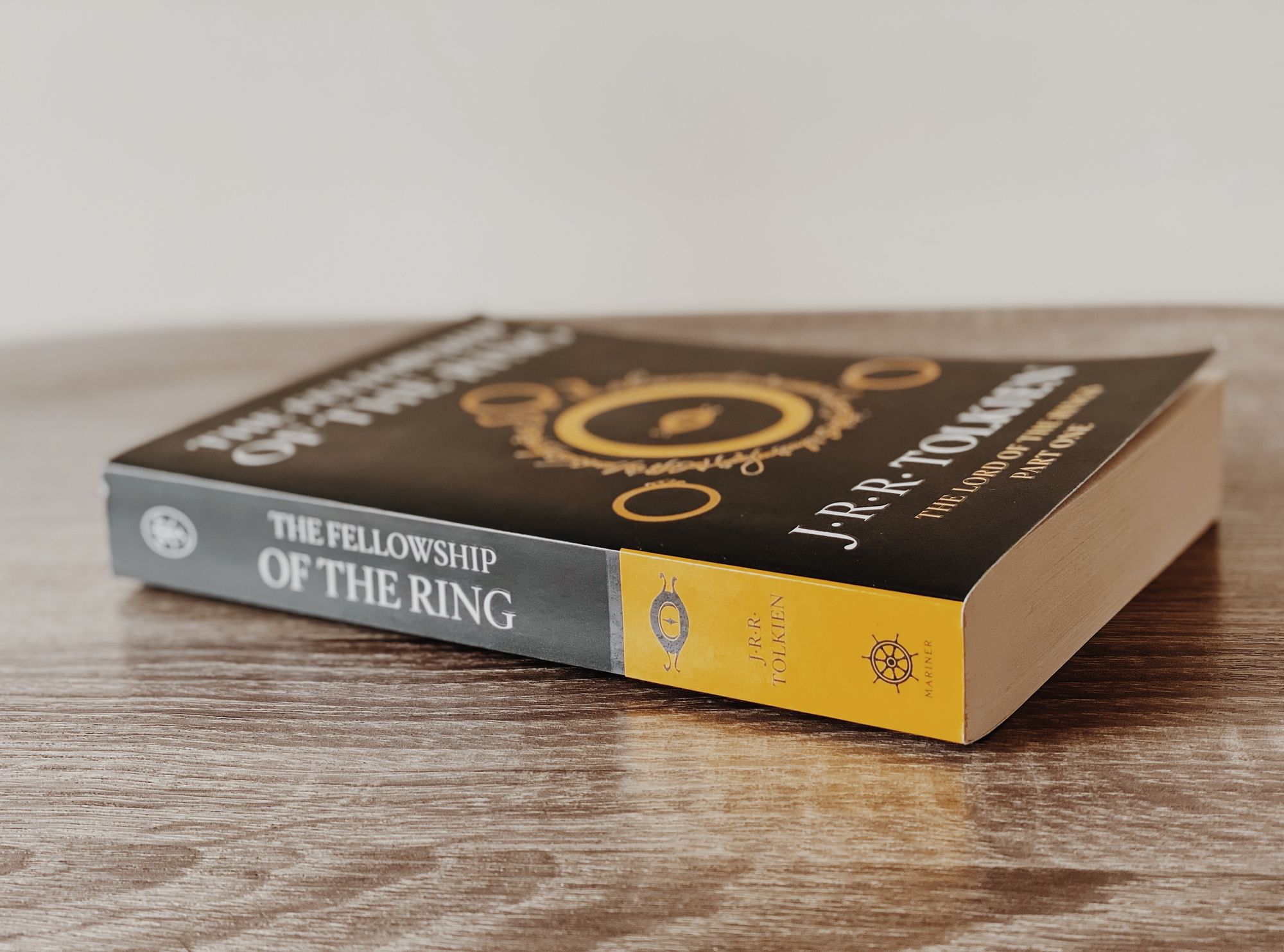Improved Mornings and a Love of Reading

Hello everyone,
We are now entering December and for me, this means exams are upon us, it also means my time here in Dublin is coming to an end. In three weeks I will be back in Sweden for Christmas, it feels kind of crazy. I don't know if it is me subconsciously preparing to go home but I feel quite ready to go back home. It is not like the other times I have lived abroad where I experienced more sadness mixed with a longing to go home. This time it is more a feeling of readiness, I am ready to go home and look forward to spending Christmas with my loved ones.
This is not to say I have not enjoyed Dublin, it has been a blast. Some ups and downs of course, but generally a great experience. I have met some amazing people, learnt a lot, experienced a new culture, and seen more of the world. I feel like I have grown a lot as a person and gotten to know myself better too, which is very rewarding. Today's newsletter is going to tackle some thoughts on morning routines, my thoughts on reading in general, and a few words about the latest book I have read.
Morning Routines
There are two reasons I am writing a blog post about morning routines. First of all, I have been trying to get up a little bit earlier in the morning. I would not say I am a morning person, but I am able to get up out of bed early and quickly for a job or assignment. The problem is when I am at university and most of my lectures start at 10, this usually means I struggle to get out of bed much earlier than 9 (depending on how far I have to travel). The second reason is that I have been consuming a lot of content and information from Dr. Andrew Huberman who speaks a lot about the importance of a morning routine.
Huberman, Ph.D., is a neuroscientist and ophthalmologist at Stanford University School of Medicine. He has become popular through appearances on famous podcasts like The Joe Rogan Experience, The Tim Ferriss show, The Lex Fridman Podcast, and eventually through his own podcast called Huberman Lab. I definitely recommend his podcast if you are interested in a science-based approach to understanding why humans are the way they are. Lots of interesting guests and Huberman is great at breaking down complex topics to make them more digestible. There are three main things I have taken away from listening to Huberman talk about morning routines. Here they are:
- Sunlight - Get sunlight on your skin and in your eyes as soon as possible. This is important for establishing a good circadian rhythm but also for hormonal reasons. The biggest benefit for me is that I feel my mood improving when in the sun. If you live in the Northern Hemisphere it may be hard to get sunlight when you wake up, there are steps such as artificial light you can take to address this. I just try to get sunlight at the earliest possible and believe it helps.
- Hydrate - When you sleep you will not consume any water, you will also perspire, and for these reasons, it is important to replenish the body with water directly when you wake up. Huberman also reminds us that it can be good to get some electrolytes and recommends adding a small pinch of sea salt to your water if you don't have any other form of electrolytes. I usually add a pinch of sea salt and at times some lemon/lime mostly for taste.
- Caffeine - WAIT! Caffeine should not be consumed for the first 90-120 minutes of the day. Adenosine is a molecule that builds up with sleepiness. Caffeine works in part by being an antagonist of adenosine. This leads to adenosine receptors going up and you may in fact become more sleepy when the caffeine wears off. So to avoid the energy dip which may occur when the caffeine wears out try to hold off on your first cup of coffee or your preferred way of ingesting caffeine.
A great explainer on caffeine and adenosine from Huberman here
In addition to this routine, I believe it is important to try to establish a set time to wake up. Your body likes recognizable patterns and falling asleep and waking up at similar times each day is shown to be beneficial in the long run. This was something that was really hammered home in Matthew Walker's great book Why We Sleep. If you want an introduction to Matthew Walker and his work on sleep I have written a blog post about it here. This all does not mean that I achieve to do all of these things perfectly every but I try to accomplish it and I have definitely improved upon my own morning routines, a lot less doom scrolling in bed both at night and in the morning and I feel a lot better for it.
Additional Tip
If you are interested in an author, podcaster, or other people who create content but not entirely sure if you like their stuff or just want to get an overview, a great way to start is to look up when they are guesting someone else's podcast. This is what I did for Ryan Holiday whose book Courage is Calling I read earlier this fall and I did something similar for Matthew Walker before reading his book too. By doing this you usually get an introduction and some backstory on the person or book they have written. I use this as a filtering method for books, if I am interested in a recent book I will look up a podcast they have recently been on and listen to them. When they are being interviewed they describe the key concepts of the book and if I am still interested in the topic after listening I will pick up the book.
Reading
Last week I talked about why I think writing is an important skill to learn and why it is so beneficial. Hand in hand with that comes reading, for me a love of reading came a long time before writing. Reading allows you to experience amazing worlds and stories, learn new things, and experience all the benefits writing can give you. Reading has played a key part in shaping me as a person.
"Read what you love until you love to read" - Naval Ravikant on his podcast
When I heard this the first time I thought it sounded a bit silly, but then I realized this is similar to my own experience. Reading is a tool for us to process information and stories. At first, the easiest way to read more is to pick books or content which you are interested in, this interest will make you read more, and as you regularly start reading your level of comprehension and reading speed will increase. This can then lead to a love for the process of reading a great story or learning about a topic. For many people reading is deeply associated with school work and studying. This is not always the most fun type of reading. Generally in school, you are not allowed to pick your own reading, and perhaps the text is dry and unengaging. This often makes reading a chore and a boring one at that.
For me reading as a child created a love for learning and curiosity. This does not mean I was reading textbooks, instead, it means the topics and genres varied but I started to like to read. I had a big love for fantasy, reading about great adventures and dreaming myself away to magical worlds was an incredible feeling. This created both a love for great stories but also for learning and knowledge. It instilled a hunger for learning and a love to improve my understanding of things. This has stayed with me into adult life where I consume a ton of information in text form, even though it is not always in books. I believe liking to read is an amazing skill to have and is beneficial in many facets of life, these days you don't have to read the books with your eyes either, instead, you can listen to audiobooks too. I like audiobooks a lot, but I struggle to have the same focus as I have when sitting down with a book.
Book Review
Building on this topic I will talk about the second book I have read since I set the goal of reading 18 books before my 25th birthday. It is the first part of The Lord of the Rings by JRR Tolkien, The Fellowship of the Ring. As mentioned earlier I have always been a big fantasy fan and I loved the movies but have never read the books. I read The Hobbit 10-15 years ago but never the trilogy. I have tried but they always felt dense and I had a sense that I knew the story from the fantastic movies made by Peter Jackson. It was not until I started to watch the Rings of Power and got really into the lore of Tolkien's world that I truly felt I had to read the books. I was watching obscure videos about lore from the world and realized it would be even more fun to read the actual stories directly from the source. There my journey to read the series began. Time will tell both if I finish the trilogy, but also if I continue with Tolkien's other works from the same world. I truly enjoyed this book even though it did take some time to finish.

Tolkien manages to create an entire world and bring it to life with such details you can't do help but marvel at it. There is definitely a form of nostalgia reading the books as I grew up with the films. As I read the book I feel like details were being filled in for my internal image of the world. It was a cool feeling. If you enjoy fantasy like I do, this is a great book. There is some great dialogue too that will make you reflect. One such instance was the below quote.
"I count you blessed, Gimli for your loss you suffer of your own free will, and you might have chosen otherwise" - Legolas to Gimli
I interpret this quote to mean that Gimli is suffering from bad times due to a decision he made on his own. Circumstances are not what created his struggle. He has made a calculated decision which may be painful now, but at least he is in control of his own decisions. This quote reminded me of another quote that I have heard a bunch of times recently. When I heard it, it was attributed to Jerzy Gregorek a Polish-American weightlifter.
"Easy choices, hard life. Hard choices, easy life" -Jerzy Gregorek
Where making the easy convenient choice that might reward you in the short term often will make you pay long term. In contrast, making the hard decision of working out or saving money will pay off long term even though it might be harder in the short term. This is true for many things in life and often times delaying gratification will allow you to achieve greater things. Unfortunately in today's world, we are flooded with opportunities for instant gratification. Our smartphones allow us to get dopamine hits in the form of likes, comments, and general scrolling of social media. Food and groceries to larger extents contain sugar, fat, and salt in combinations that make it incredibly hard for us to avoid them. Why go to the gym or out for a run when you can just stay at home and get your dopamine going by watching Netflix?
All of those things are easy in the short term but will create a harder life as you become unhealthier and have a less enjoyable life. Managing your dopamine is a key part of motivation, focus, and satisfaction. I might dive deeper into the role of dopamine in the body in another post, it is a fascinating system.
Final Takeaways
This post was written as much for me as for anyone else. It helped me verbalize my own thoughts on these topics and hopefully, they are helpful to you too.
Having a good morning routine and getting good sleep will set you up for success. I think it is important to not overdo the morning routine, find a few things that work and do those. You don't have to get up at 5 AM, go for a 20 km run, swim in an ice-cold lake, and write a novel in your journal like it sometimes seems online. Instead focus on a few key things like drinking a glass of water when you wake up, getting some sunlight, and perhaps not snoozing the alarm. Being able to sustain habits is key to making them stick. Small consistent improvements will compound into great improvements in the long run.
Reading is an amazing skill to have and to learn to love reading you should start by reading things you are genuinely interested in, it does not matter if you are reading mystery thrillers, grand fantasy books, sports books, biographies, or whatever form of reading in time you will learn to love the feeling of processing information. I hope that you found this useful and pick up a book or two. See you next week!
